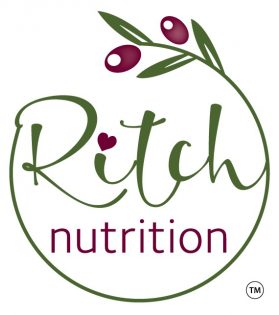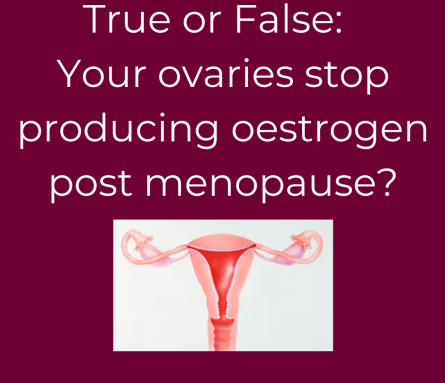It’s false!
I speak to so many women who believe that their ovaries are largely redundant post menopause and sadly those women faced with the decision of whether to remove their ovaries alongside a hysterectomy are at risk of agreeing to the removal of this vital organ based on this mistaken belief.
Firstly let me say that all hormones produced by our bodies are as a result of a complex sequence of chemical processes. Oestrogen, progesterone and testosterone [our sex hormones] don’t just magically appear. Without blinding you with too much biochemistry, there are pre-cursor hormones and complex chemical processes at play. All of which are affected by the availability of nutrients and our diet and lifestyle. Most significantly what you need to know is that our hormones are all made from the vital substance cholesterol.
What you also need to understand is that there are three types of oestrogen: oestradiol (produced by the ovaries during our reproductive years), oestriol (produced during pregnancy), and oestrone (the main type of oestrogen produced after menopause).
Post menopause when the ovaries stop producing eggs, they also produce significantly lower amounts of oestradiol. At this point our adrenal glands and fat tissue become the main sources of oestrogen production, albeit in smaller quantities and in the weaker form of oestrone.
This fact helps explain why your menopause symptoms are much worse when you’re stressed [because your adrenal glands are pumping out stress hormones instead of sex hormones]. It also helps explain why we tend to lay down weight at menopause. Our bodies are intelligent and want to keep up the number of fat cells as sources of oestrone production.
However your ovaries don’t completely shut down, they continue to make small amounts of oestradial for years after menopause. This is because they continue to produce testosterone, which is converted to oestradiol. They also produce androstenedione, a hormone which is converted to oestrone.
Final point to note is that menopause is a transition – a bit like puberty in reverse and once your hormone levels settle down you’ll be back on an even keel.
However in the meantime, all of these processes are significantly affected by what you eat and your lifestyle i.e. levels of stress, how much sleep you get and what form of exercise you do, Which is why when you get it right you can feel really great during this amazing transition.
If you’d like my help in stopping your menopause symptoms from disrupting your life and career, get in touch. I'd love to help.

